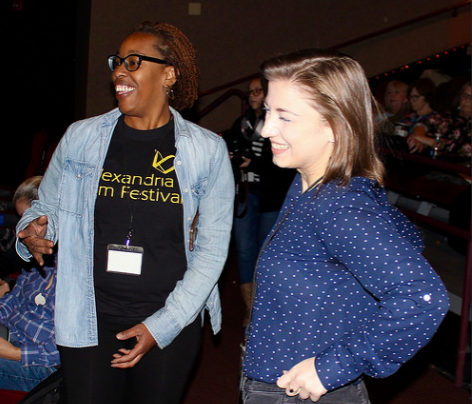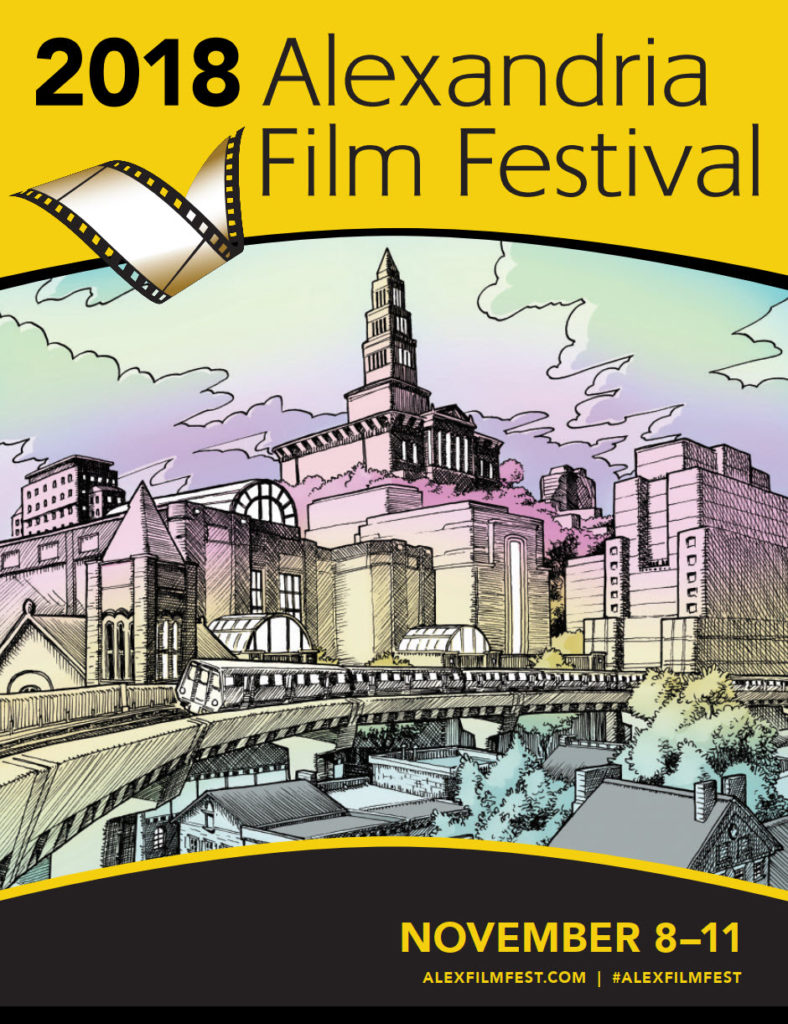70 Films, Four Days, and Three Locations of Film
Maria Areyan Hernandez, Bobby Sweeney, Kate Casper, and Luke Randall
This year’s Alexandria Film Festival (AFF) featured a diverse variety of films, including hard-hitting documentaries, a selection of international films, heartwarming shorts, and laughing-out-loud comedies. This year the AFF welcomed DMV cinema lovers to enjoy four days of films from November 8 through November 11.
More than 70 films were featured, starting with opening night at the Old Town Waterfront, additional screenings at Charles E. Beatley Jr. Library, and ending with the majority of films being shown at AMC Hoffman Center 22 movie theater.
Katherine Causo, a representative for the documentary American Exploitation said, “[AMC Hoffman] is the perfect venue for a film festival.”
The festival showcases films created by independent filmmakers from all over the world, including Canada, the United Arab Emirates, Mexico, and India, among other countries.
Mexican drama film Rosario is an example of one the many independent films screened in this year’s festival. The movie follows main character Rosario, a housewife that takes care of her ill husband. Film director and writer, Marlen Rios-Farjat, managed to let the audience know that regardless of small dialogue between the characters, through Rosario’s facial expressions it is clear her desire for a better life.
Lebanese animated short film, Silence, displays a dystopian society where people have to abide by a mandatory silence law. Everything is black and white, and everyone wears matching masks and togas; people who dance, sing, and make noise are killed. The protagonist is introduced as he meets a dancer, who has colorful clothes and features. He discovers a secret society of dancers and artists, who are later publicly executed.
Chadi Aoun, a Lebanon-based film director, managed in the film to leave the audience members speechless with the animation, sound effects, and overall tone of the film that were just perfect.
“The festival’s been wonderful. [I] definitely got to see a wide range of films. It’s been interesting watching people watch it back. It used to [scare me] because people react to it differently,” said Carly Otte, who plays Lauren “Confronting Her Ex” in Wedding Season, a comedy film of an offbeat support group where six women learn to confront their anxieties when breaking down social expectations. Otte is also the director and writer of this 13 minute film.

Mary Agnes Shearon, actress for Wedding Season said, “It’s wonderful to see locals support the film arts.” Shearon plays Sue, a middle age woman whose goal is to guide and counsel the six women to overcome their struggles inside this society.
Among one of the first films screened at Charles E. Beatley is The Human Element. This documentary shows that the elements of nature have always been earth, air, fire, and water, but that there is a fifth element – humans – a specie that is throwing all the other components out of balance.
National Geographic photographer, James Balog, captures our changing planet and documents the exponential destruction of the earth (global warming, rising sea levels, the coal industry, and air pollution). The film directed by Matthew Testa, tells four distinct stories, each corresponding with an element that causes this changes in the our planet. It also features fantastic cinematography, emotional stories, and an inspiring script narrated by Natalie Portman.
While the majority of the films at the AFF were brilliantly produced, Three Aprils in March was one that had potential, but was lacking.
Three Aprils in March is a coming-of-age film that centers on a young boy, Nick, and his awkward interactions with girls after he is asked to his first school dance. The film follows Nick as he asks different women in his life how girls act and how to act around a girl.
As the film grasps for the relevance of the stereotypical, socially awkward teen in today’s world, the film falls short. The campy acting, poor handling of the stereotypical genre, horrible production, and the annoying script made this movie a chore to sit through. The genre the movie tries to tackle, teenage “coming-of age”, is a mixed bag of unique insights into adolescence and adulthood and cringe-inducing assumptions made by filmmakers who are out-of-touch with teenage issues and desperately try to be relevant.
Three Aprils in March takes the ladder category as its bland script takes the center stage. The movie refuses to add creativity to the plot as it restates the commonly used coming-of-age premise: awkward boy doesn’t know what to do when he is asked out by a girl and eventually he turns toward adulthood by being himself.
The quick, snappy cinematography resembled an amatuer music video, not a film that deserved to be featured at a film festival. This film sticks out like a sore thumb among the other films in its showcase. While the other films show at least some care and creativity, Three Aprils in March fails to entertain with its tired premise and cringe-inducing script. Three Aprils in March is predictable, insufferable, and is about as entertaining as Chinese water torture.
Unlike Three Aprils in March, Off the Deep End is a simple, yet charming film that takes place in the mind of an overweight kid named Cody. The film begins with Cody walking along the edge of a public pool, thinking about how he is the only kid who has to wear a shirt in the pool because he weighs more than people his age. However, Cody rejects the social prejudice against his body type and takes off shirt, reclaiming his pride as he cannonballs into the pool water below. Off the Deep End is a masterfully created film that stresses the importance of loving who you are.
Alexandria Film Festival are chosen by the audience, who are given throughout the week a sheet of paper where they can rank the films from a scale of one to five. The categories for the awards are Best of Fest, Joe Cantwell of Documentary Achievement, Special Jury Prize, Audience Award, and Best of Region.
Mayor Allison Silberberg and festival chair Margaret Wohler presented the awards. This year’s winner for Best of Fest was Hunting Lands by Edwin Stevens. Joe Cantwell Award for Documentary Achievement went to American Relapse by Pat McGee, Special Jury Prize was won by Jason Zavaleta, Matt Stoner, and Brennan Keel Cook for I Wrote This For You. Audience Award went to Sarah Park and Jane Pittman for The Makeover and lastly the film that won Best of Region was Warpath: The Road to States by Clark Vandergrift.


